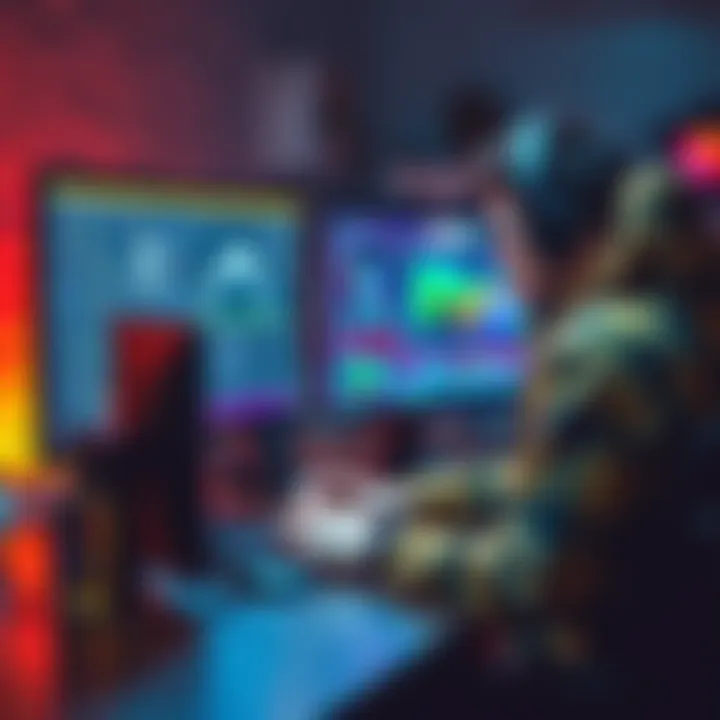Game Development Insights | New Trends and Community Learning Uncovered

A vibrant community of game developers is actively discussing their learning processes. As newcomers share their journeys, key themes emerge regarding foundational skills, financial realities, and the importance of community support in game development.
The Journey Begins: Learning Foundations
Recent discussions underscore how many developers start by replicating code from tutorials, a method both praised and critiqued:
A self-taught developer with prior experience in VBA macros shared, "I started reading tutorials on the basics, which felt easy. Then I joined a community and began helping others. This was a great way to learn."
Many expressed confusion around core concepts such as transforms, arrays versus vectors, and quaternions.
One developer mentioned, "Even if I skip all the basic exercises, I focus on playtesting to fully understand my code's effects."
Newcomers often rely on resources like video tutorials and community forums to bridge knowledge gaps. As one participant noted, "Reading a book about Unity clarified many of my questions."
Financial Aspirations and Realities
While many developers prioritize skill acquisition over income, financial discussions reveal mixed sentiments:
Some individuals shared their experiences with early game sales. One commented about their app "Myriad," which made about $700 per month early on but is now free and generates $20 monthly from Patreon.
Discussions about the sustainability of game development bring up the question: how many indie creators actually see ongoing success from their projects?
One user shared, "Most of my games were small and never made a lot of cash, but the experience was invaluable."
The Role of Community in Learning
Community support is a recurring theme, with peers helping guide personal growth:
Collaboration and mentoring are seen as invaluable aspects of the learning path.
A developer highlighted, "Learning from debugging and peer discussions was critical in understanding my coding challenges."
“The more I help others, the more I learn,” expressed another participant, emphasizing the reciprocal nature of community involvement.
As developers continue to share, the evolution of their learning methods suggests a shift towards community-driven models that will likely emphasize collaboration and innovative project work.
Key Insights
🔹 Many newcomers begin their journeys by copying tutorial code, melding this practice with trial and error.
🔸 Financial success varies; many creators focus on learning over profitability.
⭐ Community support remains crucial for overcoming coding challenges and fostering resilience.
The ongoing dialogue raises the question: how can emerging game developers better balance creativity with technical skills?
A Look Ahead
Experts suggest that as technology evolves, the traditional reliance on tutorials may reduce. Emphasis on collaborative and project-based learning can lead to original idea development. Some predict as much as 70% of newcomers might embrace these community-driven models, preparing them for sustained success in the industry.
Reflecting on the Past
Historically, programming has seen similar pathways, where early coders often learned through imitation and community sharing. This echoes in today’s game development scene, reinforcing the idea that collaborative learning environments may unlock innovative game design in the years to come.
